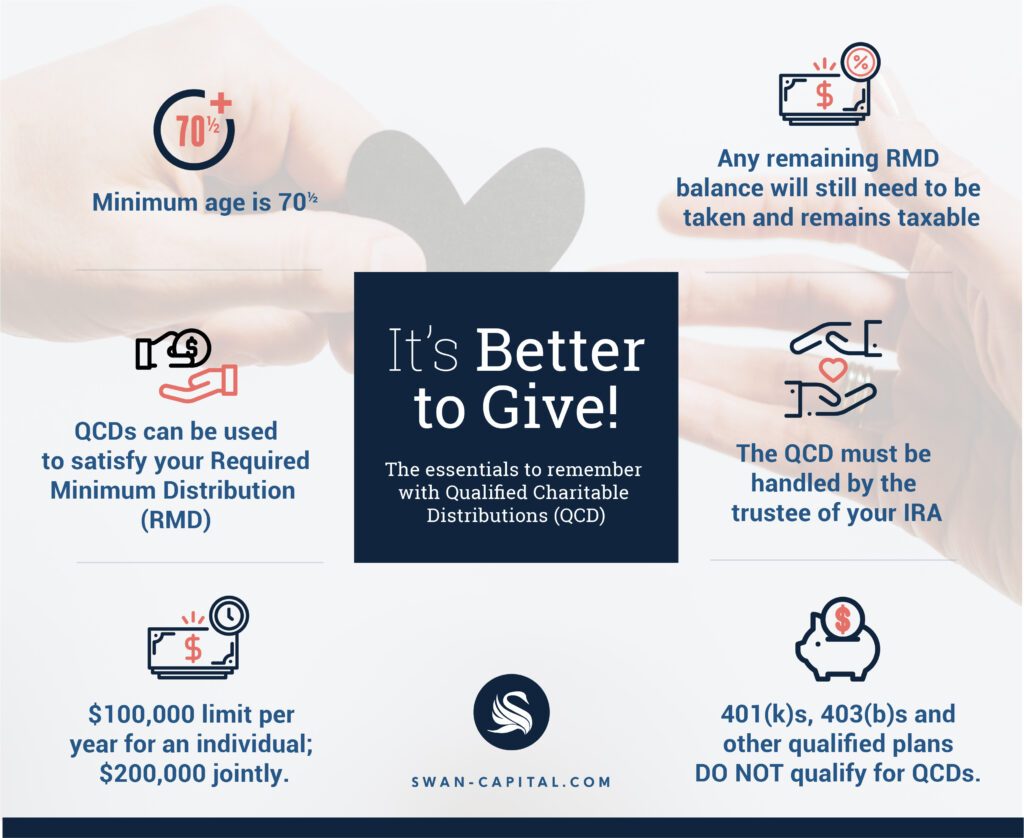It is better to give!
It can be true; it is better to give than to receive.
However, many Americans could be experiencing less joy when giving this year. After the most recent tax reform, many givers were surprised to discover that the standard deduction was so high it eliminated the need to itemize. Therefore, countless families received no direct tax benefit for their charitable giving.
One of the more popular itemized deductions, of course, has been the amount you gave to your church or your favorite charity.
For 2020, the standard deduction has jumped to $12,400 for individuals and $24,800 for married couples filing jointly.1 The new standard deduction is now nearly double what it was before the tax reform. For many givers out there, unless they have a large list of deductions exceeding those amounts, there are no tax benefits to itemizing. Therefore, so long to the charitable deduction – and the tax benefit that came with being generous.
However, for some people, there is still another way to reduce your taxes through charitable giving that is unrelated to deductions. Let me introduce you to a Qualified Charitable Distribution (QCD); a perfect strategy if you have a traditional IRA and are over age 70½. The QCD allows you to satisfy your Required Minimum Distribution (RMD) by giving to your beloved local charity and/or tithing to your local church. You can implement this strategy as long as the entity you donate to is a 501(c)(3) organization. It is imperative that you do it correctly though. You must instruct your IRA custodian to make the donation directly from your account to the charity without taking receipt of the funds so it doesn’t show up as a part of your adjusted gross income on your tax return. In doing so, you don’t have to pay income taxes on the amount you gift to the charitable organization.
Sadly, countless Americans are missing out on this opportunity. Most families simply take their RMDs and deposit these funds into their savings account, then on a monthly basis give those same dollars to their church without enjoying the tax savings that are available. The QCD allows you to take your standard deduction without having to trade-off the tax benefit of gifting. For example, let’s say we have a client who is required to take a $5,000 RMD distribution this year and pays 15% in taxes on this distribution. Later, that client decides to give that money to charity. That means the client lost $750 to Uncle Sam that could have been saved if they had a QCD.
The following are essential things to remember with QCDs:
- Minimum age is 70½
- QCDs can be used to satisfy your RMDs
- QCDs have a $100,000 limit per year for an individual; a couple filing jointly can qualify for $200,000 jointly
- Any remaining RMD balance will still need to be taken and remains taxable
- The QCD must be handled by the trustee of your IRA (except with an ongoing SEP or SIMPLE IRA). QCDs will be recorded by you or your tax professional on your 1040 form as an IRA distribution, but will not be taxable
- 401(k)s, 403(b)s, thrift savings plans, and other qualified plans do not qualify for QCDs; it must be an IRA
I encourage you to consult with a financial professional who will work alongside your CPA to implement this QCD strategy. QCDs can help lower your current tax burden and reduce the risk of future tax increases.
As you decide on how to distribute your RMD this year, remember that a QCD is a great way to satisfy your RMD requirement and in the process receive a nice tax break for your generosity. This year don’t just give: give and receive.

Andrew McNair is the president of SWAN Capital, an independent financial services firm in Pensacola, Florida.
SWAN Capital is registered to conduct advisory business in Alabama & Florida and in other jurisdictions as permitted by law. Advisory services offered through SWAN Capital, LLC.. Neither the firm nor its agents or representatives may give tax advice. Individuals should consult with a qualified professional for guidance before making any purchasing decisions. Although there is no up-front tax deduction for Roth IRA contributions, qualified distributions are income tax-free. Investing involves risk, including the potential loss of principal. Our firm does not provide and no statement contained in the guide shall constitute tax or legal advice. All individuals are encouraged to seek the guidance of a qualified tax professional regarding their personal situation. SWAN Capital is not affiliated with the U.S. government or any governmental agency. 00616636https://www.investopedia.com/everything-to-know-about-individual-2020-taxes-4775907
Thought this info was useful?
Please share it on your social media platforms!
Ready to Take the Next Step?
For more information about any of our products and services, schedule a meeting today or register to attend a seminar.
 Download this 8-page guide was created for you to better understand how taxes could affect your retirement income.
Download this 8-page guide was created for you to better understand how taxes could affect your retirement income.